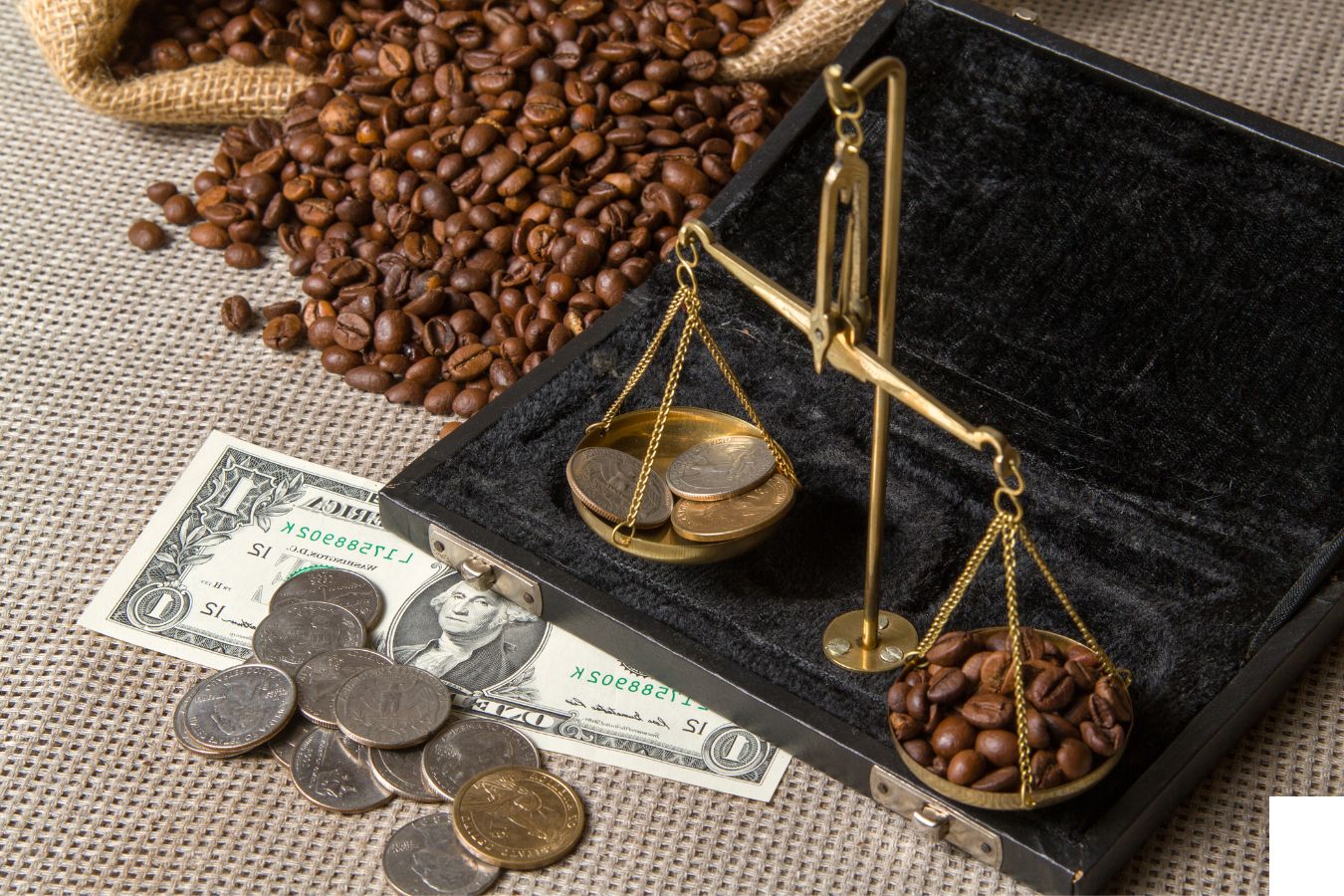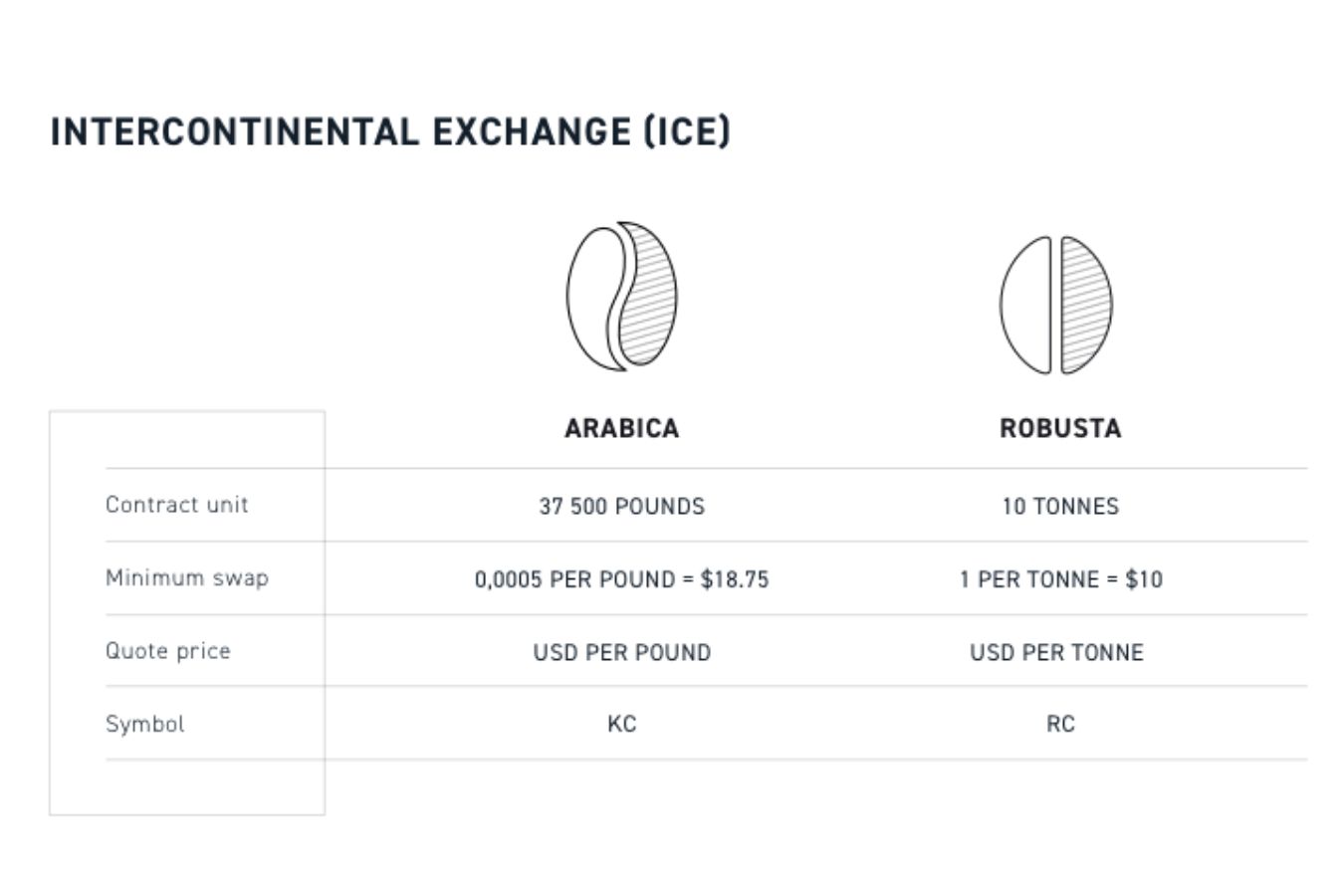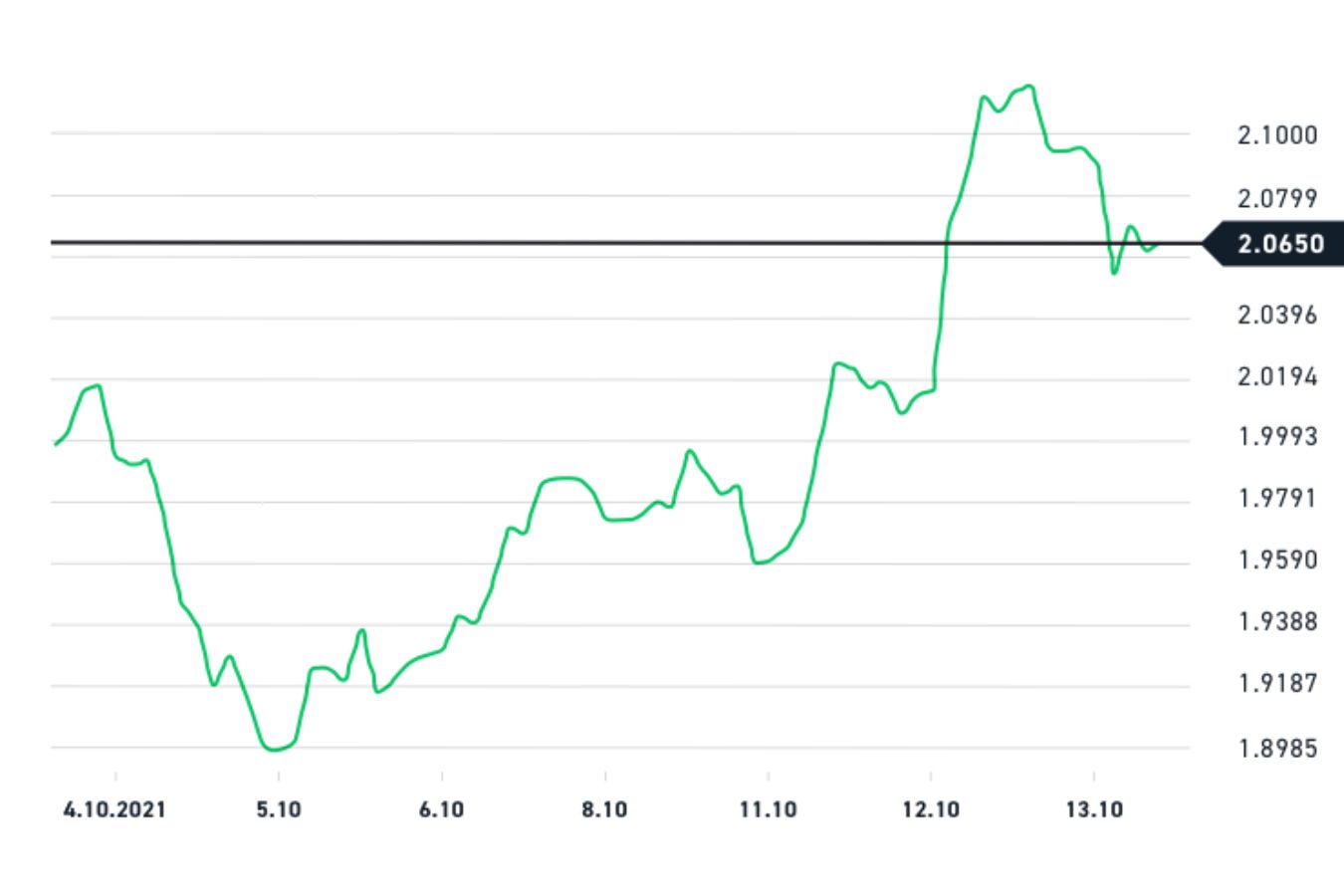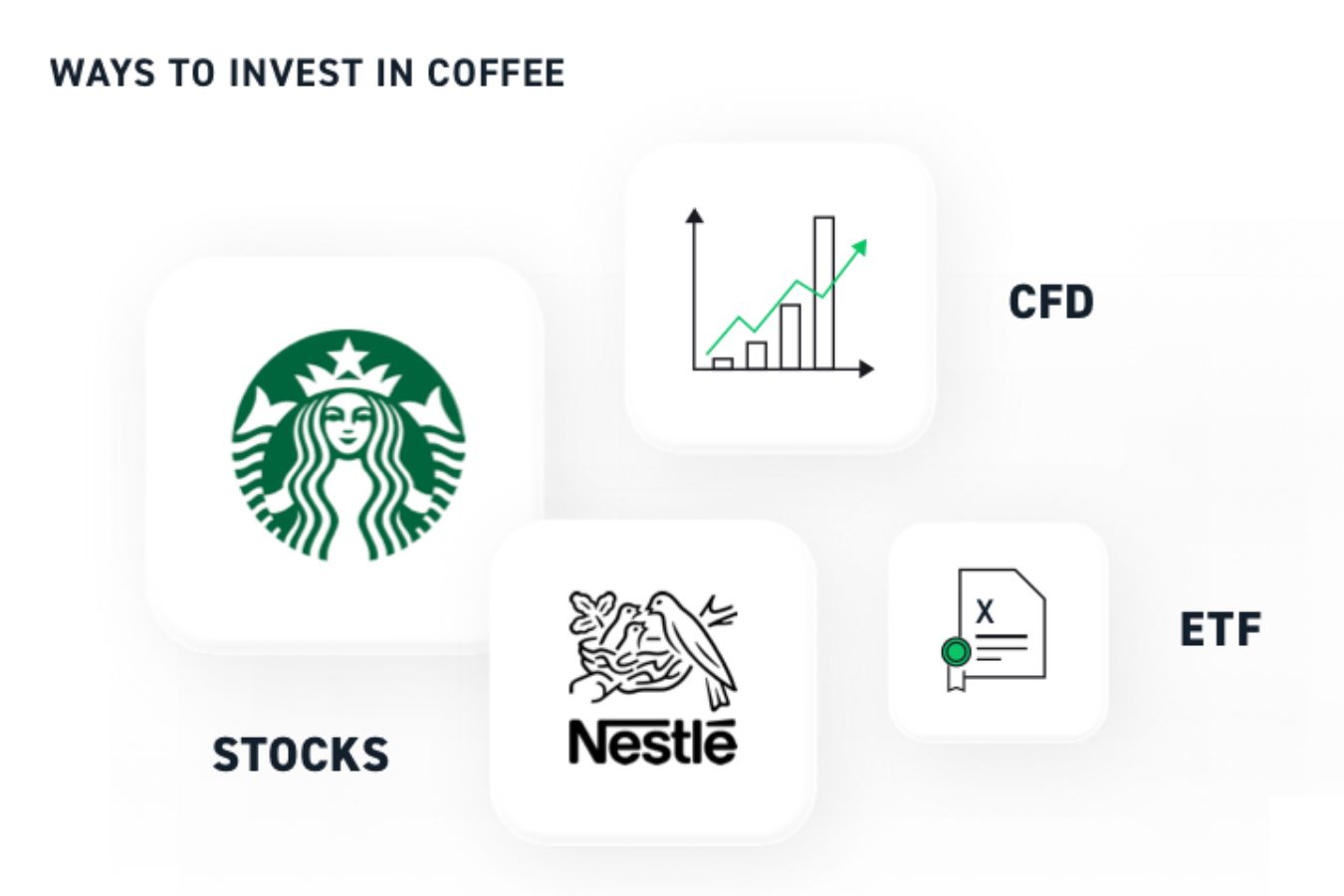
Coffee Trading: Should You Invest in Coffee Contracts for Differences? Brazil is the world’s largest coffee producer, with a product accounting for more than 35% of the worldwide output. However, not everyone knows that coffee beans come from a plant that grows in more than 50 countries with tropical and subtropical climates. Now, thanks to coffee derivatives, anyone can invest in this agricultural product or speculate on the price of this farm product.
Coffee Contracts for Differences (CFDs) – Arabica or Robusta
Futures contracts traded on the Intercontinental Exchange (ICE) include two types of coffee beans, Arabica and Robusta. Arabica beans account for about 70% of the world’s coffee production and are considered high-quality. However, Robusta beans are more expensive, mainly due to low production volumes and high demand from multinational companies such as Nestlé. You can find the basic parameters of the two types of coffee on the Intercontinental Exchange.

Please note that the above data refer to past performance and is not a reliable indicator of future performance.
Coffee trading hours on the Intercontinental Exchange:
- Arabica Coffee – Monday to Friday, 10.15 am to 6:30 pm (UTC),
- Robusta Coffee – Monday to Friday, 9 am to 5:30 pm (UTC).
What is a Coffee Derivative Contract? Coffee Trading Instrument
There are many different ways to invest in coffee, and one of the simplest methods is to trade coffee derivatives. So what is derivatives trading? A CFD (Contract for Difference) contract is an agreement between an investor and a broker that enables the investor to profit or lose based on the difference between a trade’s opening and closing prices.
Coffee CFDs are highly liquid as they do not tie traders to the asset. When investing in this commodity, the trader buys only the underlying contract and thus avoids the problems associated with buying and owning the actual item.
Trading Coffee CFDs: How to invest in Coffee CFDs?
When you invest in coffee derivatives, you can trade the commodity in both directions, which means you can profit from rising and falling prices. After assessing the potential trend of the market and predicting the cost of the coffee, you can open a long (long/buy) or short (short/sell) position.
Appropriate fundamental analysis and solid technical analysis will contribute to a successful speculative strategy in the coffee and financial markets. Below is the daily chart of Arabica coffee in recent times:

Please note that the above data refer to past performance and is not a reliable indicator of future performance.
Thanks to the ability to open orders in both directions, you can place a BUY order if you expect the market price of coffee to rise or a SELL order if you anticipate a decrease in the price of coffee.
Coffee CFD investing attracts investors because of its ability to use leverage. Still, it should also be noted that power can help you increase your profits many times over but can also cause you significant losses if the price goes against your prediction.
What is contango?
When it comes to investing in coffee in the form of futures, it is also essential to mention the contango phenomenon that exists in most raw materials and commodity markets. This process requires a futures rollover mechanism, which involves maintaining a position by converting a series of expiring contracts into one with a further settlement date, such as from May to July. This can be done by selling the expiring contract before settlement and buying a new one.
Once we understand what a futures contract is, we can explain the phenomenon of contango or forward action. This is a phenomenon in the futures market (such as coffee futures) in which the price of the futures contract is higher than the spot price of the CFD contract.
For example, the current price of an expiring Arabica coffee contract is $105/unit, and the cost of the next futures contract (with a further expiration date) is $110. In this situation, the spread between the two contracts would be $5 and converted directly into the rollover fee of a position at $1,875 per contract.
How to calculate this total amount? One Arabica coffee forward contract is equivalent to 37,500 pounds of Arabica beans, and the exchange rate represents the price of 100 pounds of coffee so the rollover fee would be the product of 5 times 375.
It should also be noted that low spreads are ideal and a common phenomenon in the markets of goods and services. Conversely, an excessively high feed encourages hoarding commodities (in this case, coffee) and reselling them in the future at a price higher than the current price. The opposite of contango is the backwardation phenomenon, which is scarce in the coffee CFD market.
Top Coffee Trading: How many ways to invest and trade in coffee?
As discussed above, coffee derivatives are not the only method to invest in this commodity. Here are other forms of investment you can choose from, including the most popular:

– Coffee ETF: you can invest in the coffee market in the medium to long term through these funds;
– Invest in shares of coffee companies such as Nestle, Starbucks, and many others; however, it should be noted that most of these companies generate revenue by selling other products or services; these factors will affect their stock price. Although XTB does not offer coffee and stock ETF products, you can still trade these products through CFDs (contracts for difference) on our xStation platform. You can learn more about CFDs here.
Coffee is the world’s second most traded product (after oil). While it may seem that coffee is purchased primarily for consumption, it can also be viewed as an investment. In addition, you can also speculate on the price of this product through CFD contracts and take advantage of the opportunity whether the price rises or falls.
Keywords: Coffee traders, coffee trading price, coffee trading brokers, coffee trading instrument, trading coffee CFDs, trading coffee step, top coffee trading, beans, coffee beans wholesale, wholesale coffee beans.